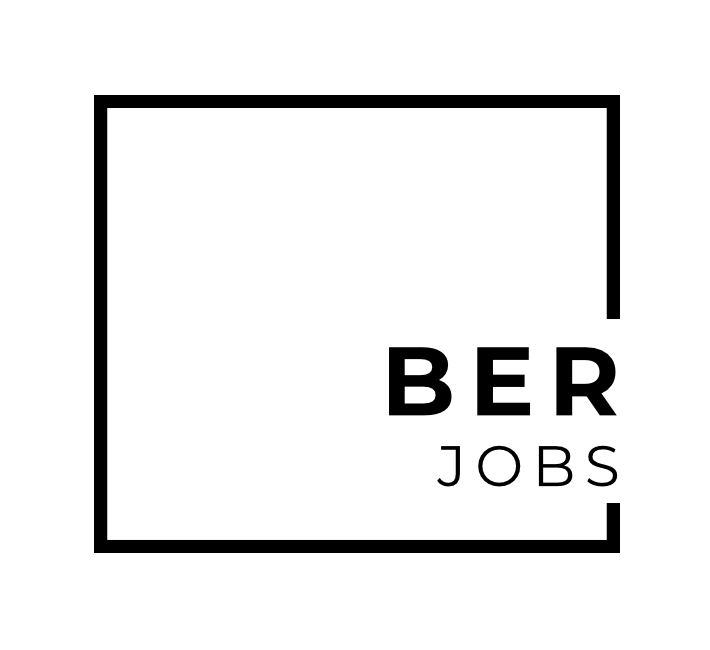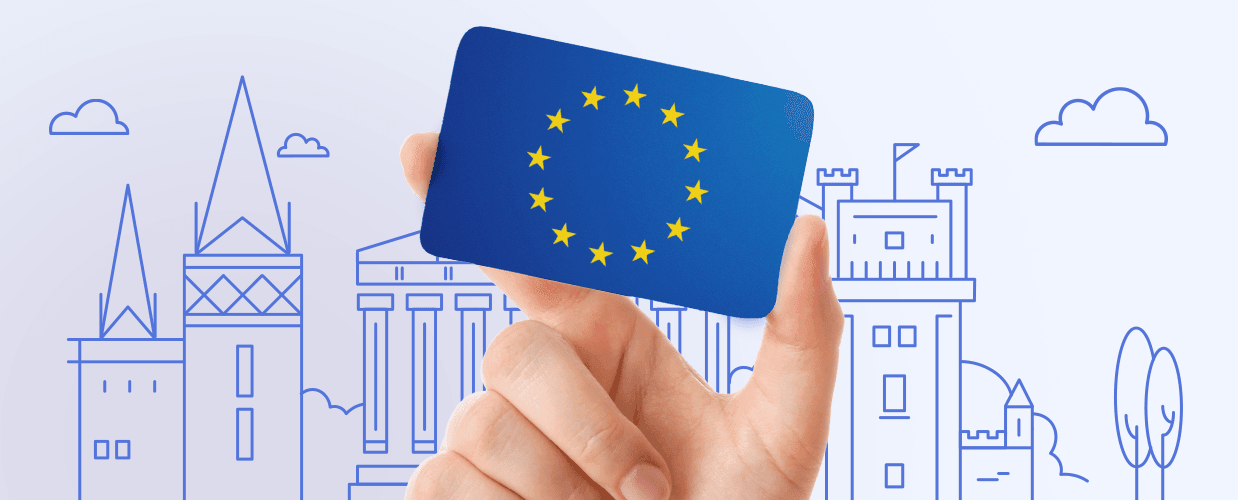Navigating the intricate maze of visa applications can feel like a daunting task, especially when your career aspirations hinge on securing the right work permit. For seasoned IT professionals eyeing Germany as their next big opportunity, the Germany Blue Card presents itself as a golden ticket—offering not just a job but a pathway to a long-term residence in one of Europe’s most tech-forward nations. Yet, what promises to be a gateway to new possibilities often becomes a labyrinth of paperwork and procedural hurdles, leaving many hopefuls bewildered and anxious about their prospects.
The good news? Understanding the nuances of the Germany Blue Card application can demystify the process and empower you to take control of your future. This guide aims to transform confusion into clarity by providing a step-by-step approach tailored specifically for IT experts. By breaking down eligibility criteria, salary benchmarks, and document preparation, we’ll equip you with the knowledge to approach each stage with confidence. As Germany continues to welcome talented professionals amidst an ongoing tech talent shortage, there’s never been a better time to seize this opportunity and start building your dream career abroad. Ready to master your application? Let’s dive in.
Eligibility Criteria for Germany Blue Card Application
To qualify for the Germany Blue Card, you must first meet a set of baseline requirements designed to ensure you bring valuable skills to the German labor market. As a non-EU national, you’ll need at least a bachelor’s degree or an equivalent qualification recognized in Germany. For IT professionals, this typically means holding a degree in computer science, information technology, data science, cybersecurity, or a closely related discipline from a reputable institution. In some cases, several years of relevant professional experience can substitute for formal academic credentials if your employer and the local immigration office agree.
Beyond educational credentials, a confirmed job offer from a German employer is essential. The position must correspond to your qualifications, and your gross annual salary should meet the minimum threshold set by law (discussed in detail later). Additionally, you need proof of health insurance valid in Germany and a valid passport. Certain federal states may also require basic German language proficiency or at least a declaration of willingness to learn. By ensuring you tick all these boxes—academic credentials, a suitable job offer, salary, insurance, and passport—you’ll clear the first hurdle on your path to securing the Germany Blue Card.
Understanding the Benefits of the Germany Blue Card
The Germany Blue Card offers significant advantages over other work permits, making it particularly attractive for IT professionals. It functions as both a work and residence permit, allowing you to live and work legally in Germany for up to four years initially (or the duration of your contract plus three months). Unlike some short-term visas, the Blue Card gives you family reunification rights, meaning your spouse and minor children can join you and enjoy unrestricted access to the German labor market.
Beyond immediate residency, the Germany Blue Card also streamlines the path to permanent settlement. After 33 months of employment (or just 21 months if you demonstrate B1-level German proficiency), you may apply for a permanent residence permit, granting you the freedom to change employers or professions without extensive bureaucracy. Additional benefits include access to Germany’s comprehensive social security system—healthcare, pension, unemployment insurance—and eligibility to participate in government-sponsored integration courses. For IT experts navigating Europe’s competitive job landscape, these perks translate into professional stability, personal security, and a clear route to long-term residency.
Researching In-Demand IT Skills in Germany
Germany’s tech ecosystem is booming, and demand for specialized IT skills continues to outpace supply. Before applying for the Germany Blue Card, invest time into understanding which competencies are most sought after by employers. Roles in software development, cloud engineering, DevOps, artificial intelligence, data science, and cybersecurity dominate job boards. Technologies like JavaScript frameworks (React, Angular), backend languages (Java, Python, Go), containerization tools (Docker, Kubernetes), and cloud platforms (AWS, Azure, Google Cloud) consistently rank highly.
To refine your skill set, consult German job portals such as LinkedIn Germany, StepStone, and XING for real-time insights. Professional communities on GitHub or Stack Overflow can highlight emerging trends, while annual reports from the Federal Employment Agency outline shortage occupations and salary data. Attending virtual or in-person tech meetups and webinars hosted by German developer networks helps you gauge employer expectations, niche frameworks, and salary benchmarks. By aligning your expertise with market demands, you increase your attractiveness to potential employers and boost your chances of meeting the Germany Blue Card requirements.
Meeting the Minimum Salary Requirements
One of the most critical eligibility criteria for the Germany Blue Card is meeting the annual minimum salary threshold. As of the current year, the general threshold stands at €58,400 gross per year. However, for occupations deemed in shortage—many of which fall under the IT umbrella—this threshold is reduced to around €45,552 gross per year. These figures are updated annually, so always verify the latest rates on the Federal Office for Migration and Refugees (BAMF) website before applying.
When negotiating your employment contract, ensure that the gross annual salary explicitly meets or exceeds the relevant threshold. Remember that your salary offer must be stated clearly in your contract or a formal job letter, as German authorities will scrutinize this document. Consider bonus structures and allowances—it’s safest to secure a base salary that alone fulfills the requirement. If your salary is close to the threshold, you can provide additional documentation (e.g., remuneration certificates) to clarify the total compensation package. Ensuring your salary aligns with the published minimum is a non-negotiable step toward a successful Germany Blue Card application.
Gathering Essential Documents for Your Application
Compiling a comprehensive document package is vital for a smooth Germany Blue Card application. Start with certified copies of your passport and academic certificates—your university diploma and transcripts must be translated into German or English by a sworn translator. Obtain an employment contract or formal offer letter detailing your job title, responsibilities, salary, and contract duration. Include a recent curriculum vitae and, if applicable, proof of professional experience such as reference letters or employment certificates.
In addition, secure proof of health insurance valid in Germany—either private or public coverage—and evidence of professional licensure if your role legally requires it (e.g., certain IT security certifications). Some local immigration offices demand a rental contract or address registration (Anmeldung) in Germany, so have tenancy agreements or hotel reservations ready if you’ve arranged temporary accommodation. Lastly, collect a completed application form (available online via the German embassy or consulate portal) and recent biometric photographs meeting official specifications. By preparing these documents in advance—with certified translations and consistent formatting—you minimize back-and-forth delays and set the stage for a swift application.
Submitting Your Application Online
Germany has streamlined many visa procedures by allowing online submissions through the Federal Foreign Office’s portal or specific consular websites. Begin by creating a user account on the relevant portal and completing the EU Blue Card application form. Enter personal details, educational background, employment contract data, and intended start date. Upload digital copies of your passport, degree certificates, employment letter, health insurance proof, and any additional documents requested by your local German mission.
After submission, pay the application fee—typically around €100—through the portal’s secure payment methods. You will then receive confirmation of your submission along with a request for an in-person appointment at the German embassy or visa center. Print out all uploaded documents and payment receipts to bring to your appointment. By leveraging online submission, you reduce paperwork errors, monitor the status of your Germany Blue Card application in real time, and schedule interviews at your convenience. Stay proactive by checking email notifications and portal updates regularly to ensure timely completion of each step.
Navigating the Interview Process
Your in-person interview at the German embassy or local immigration office is a critical step in finalizing your Germany Blue Card application. Typically lasting 10–15 minutes, the interview focuses on verifying your identity, qualifications, and the legitimacy of your job offer. Bring original documents and certified translations—including your passport, degree certificates, employment contract, and proof of health insurance—to present to the consular officer. Dress professionally, arrive early, and carry a concise summary of your role and responsibilities to reference if needed.
During the interview, expect questions about your academic background, detailed job description, salary package, and long-term plans in Germany. Officers may inquire about your German language skills and how you plan to integrate into local society. Practice clear, confident responses in English or basic German, even if the interview is conducted in English. Remember that the purpose of the interview is not to test your technical abilities but to confirm that your application matches official requirements. Maintaining a calm, courteous demeanor and providing direct answers will help expedite approval of your Germany Blue Card.
Handling Potential Application Challenges
Despite thorough preparation, you may encounter hurdles during your Germany Blue Card application. Common challenges include missing or improperly certified documents, discrepancies in salary details, or delays in degree recognition by the Central Office for Foreign Education (ZAB). If your application is returned for corrections, respond swiftly by obtaining any missing apostilles, clarifying contractual terms with your employer, or scheduling additional translation services. Regularly check your application status online and review any feedback from the immigration office carefully.
In cases of salary shortfalls, consider negotiating an updated contract or providing supplementary remuneration evidence. If degree recognition is pending, apply for a “Statement of Comparability” from ZAB early in the process. Should your initial application be rejected, you have the right to appeal within a specified timeframe—often one month—by submitting a reasoned letter and any additional documentation that addresses the authorities’ concerns. Staying organized, proactive, and in close communication with your employer and immigration office will help you navigate and overcome these potential obstacles.
Celebrating Your Approval: What’s Next?
Congratulations—your Germany Blue Card has been approved! Once you receive the physical card, you can enter or remain in Germany under its conditions. The immediate next step is to register your address (Anmeldung) at the local Residents’ Registration Office (Einwohnermeldeamt) within two weeks of your arrival. This registration is crucial for obtaining a tax ID (Steueridentifikationsnummer), which your employer will need for payroll purposes.
Simultaneously, finalize your health insurance enrollment, open a German bank account, and apply for a social security number if your employer hasn’t already done so. Consider enrolling in integration courses or language classes to accelerate cultural adaptation and meet permanent residency requirements more quickly. With these administrative tasks behind you, you’re free to focus on excelling in your new IT role, exploring Germany’s vibrant tech hubs, and laying the groundwork for a long-term career—and life—in your new home.
Conclusion: Embracing Your Future with the Germany Blue Card
Securing the Germany Blue Card is a transformative milestone for IT professionals seeking growth in one of the world’s leading tech ecosystems. By mastering the eligibility criteria, salary benchmarks, and document preparation steps outlined in this guide, you’ve positioned yourself to navigate the process efficiently and confidently.
As you settle into your role and life in Germany, take advantage of the Blue Card’s family reunification benefits, social security protections, and streamlined path to permanent residency. Your journey doesn’t end with approval—it begins. Embrace the opportunities, forge new connections, and build a rewarding career in Germany’s dynamic tech landscape.














